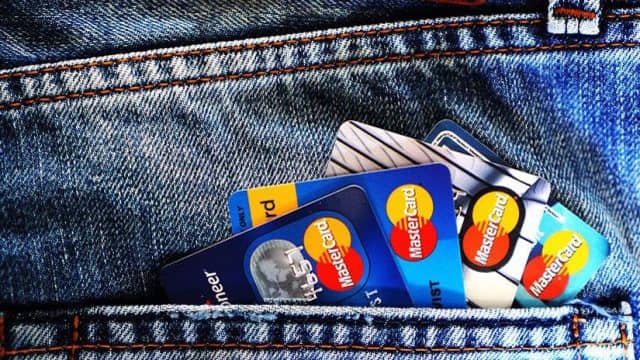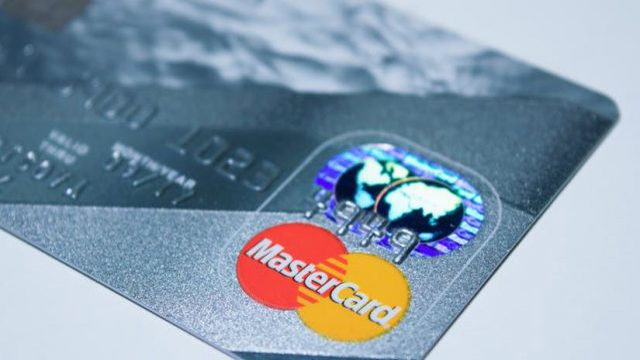Advertiser Disclosure
Best Credit Cards Of 2022 | Mentor
Updated On March 7, 2022
Editorial Note: This content is based solely on the author's opinions and is not provided, approved, endorsed or reviewed by any financial institution or partner.

Let's explore our top picks for the best credit cards.
Compare our top picks and find the right credit card for you.
What is a credit card?
A credit card is one financial tool that you can use to borrow money to buy goods and services. Credit cards are typically issued by banks and provide short-term access to money, which is then repaid each month. During the month, you can use your credit card as often as you prefer so long as you do not exceed your credit limit. A credit limit is the maximum outstanding balance that you can have on your credit card. Typically, you can only spend up to your credit limit, or you may face additional fees.
When it comes to Credit Cards 101, it is important to know how to use a credit card. During a given month, you are not charged any interest on your credit card purchases. The credit purchases that you make are paid for by the bank, not you. At the end of each month, you are presented with a statement of your transactions to repay the bank. If you repay your full credit card balance each month, then you will not be charged any interest with a credit card. If you do not pay your credit card balance in full or at all, the bank will charge interest on your credit card balance at an annual percentage rate, or APR, that has been agreed to when you were approved for your credit card.
If you compare credit cards to debit cards, you will find that credit cards are different than debit cards. When you spend with a debit card, you pay for purchases with your own money and the funds are directly removed from your account at the time of the transaction. Therefore, unlike credit cards, debit cards do not involve any borrowing.
What are the best credit cards to have?
The best credit cards to have are the credit cards that match your financial goals and personal preferences. To evaluate the best credit cards to have, you can compare credit cards on Mentor. When it comes to the best credit cards to apply for, you should evaluate multiple factors when you compare credit cards. For example, consider credit card rewards, APR, annual fees, credit card benefits and other fees. If you want to earn credit cards rewards (which one of the most popular reasons for credit cards), then compare credit cards to determine the best credit cards to have for credit cards rewards. For the best credit cards to apply for, there are many types of credit cards rewards cards such as cash back cards, travel rewards cards, airlines miles credit cards, credit card points cards and gas rewards cards, among others.If you want to make a balance transfer, there are 0 APR balance cards that will charge you 0% APR for a certain period of time so you can repay your credit card balance without paying interest.
When you compare cards to find the best credit cards to have, choose the cards that will help you act responsibly, pay off your credit balance each month and not incur additional fees. Develop an action plan to repay your credit card balance each month. You can build credit and raise your credit score over time as you make more on-time payments.
How can I learn how to use a credit card responsibly?
When it comes to Credit Cards 101, it is important to know how to use a credit card responsibly. In order to build credit with your credit cards, you need to use credit cards responsibly. The best credit cards to apply for and the credit cards to have are the credit cards that you help you act financially responsible.
Here is the Credit Cards 101 guide how to use a credit card responsibly:
- Always pay your credit card bill in full every month
- Do not make any late payments on your credit cards or you will be charged late fees and penalties. You can compare credit cards to find the fees when you carry a credit card balance.
- Do not skip a credit card payment, or you will also incur interest on your credit cards. You can compare credit cards to determine the APR when you carry a credit card balance.
- Keep low credit card utilization. Credit card utilization is the percentage of your credit card balance relative to your credit limit. When it comes to Credit Cards 101, a good rule of thumb is to maintain a credit card utilization below 30%. Therefore, if you have a credit limit of $10,000, you should keep your credit card balance at any given time at $3,000 or less. If you think your credit card balance may exceed this amount, then you should make a payment to reduce your outstanding balance accordingly.
- Check your online credit card account to ensure that the transactions are accurate. By checking your credit card account regularly, you can help protect against fraud.
What are the advantages of credit cards?
When you compare credit cards and determine the best credit cards to have based on your preferences, you will find that credit cards have several advantages.
1. Credit cards can help build your credit rating
You can use your knowledge on how to use a credit card to help build your credit score. One major component of your credit score is your history of payments, particularly on-time payments. The longer your history of on-time payments, the stronger history of financial responsibility that you can build.
2. Credit cards offer various security and anti-fraud protections
Credit cards can be safer than carrying cash because if you lose your wallet, your cash may be gone forever. Credit cards, however, can be cancelled if you lose your wallet and you will have no further financial responsibility. You can also report any fraudulent activity on your account and your bank will remove the incorrect credit card charges.
3. Credit cards help you get a refund easily
If you ever need to get a refund on a purchase, and a merchant will not refund your item, your credit card company can assist with any merchant dispute.
4. Credit cards offer rewards
The best credit cards to apply for often come with credit card rewards. These rewards may include rewards points, travel rewards, cash back rewards, airlines miles and other types of rewards that you can earn with every dollar you spend on your credit cards. You can compare credit cards to find the best credit cards to have based on your personal preferences for rewards cards.
5. Credit cards save you trips to the ATM
Since credit cards are cashless, you can avoid multiple trips to the ATM as well as ATM fees in a given month.
6. Credit cards can be used in any currency
If you compare credit cards, you will find that credit cards can be used in any currency. The ability to use credit cards when you travel internationally can save you time from converting currency.
7. Credit cards offer the ability to borrow for free
When you compare credit cards, you will find that all credit cards allow for interest-free, short-term borrowing. As you know now from how to use a credit card, this means that for each month, you can charge purchases on your credit cards without incurring any interest. Interest only accrues if you have a credit card balance after your payment due date.
What are the disadvantages of credit cards?
When you compare credit cards and determine the best credit cards to have based on your preferences, you will find that credit cards also have several disadvantages.
1. Credit cards can have high interest rates
Credit cards can have high interest rates, expressed as an annual percentage yield (APR), which can be charged if you do not pay your credit card balance. If you plan to carry a credit card balance, compare credit cards so you can determine which credit cards have lower interest rates. The best credit cards to have for you depend on whether you plan to carry a balance. If you don’t plan to carry a balance, then the best credit cards to apply for do not have to based on APR or interest rate.
2. Credit cards can lead to credit card debt
The best credit cards to have are the credit cards that help you live a financially responsible life. Pay your balance in full each month so you avoid credit card debt. If you do have credit card debt, personal loans are a great tool to consolidate credit card debt, lower your interest rate and save money.
3. Credit cards may have an annual fee
Compare credit cards to find the best credit cards to apply for. Some credit cards have an annual fee, whereas other credit cards do not have an annual fee. Credit cards with an annual fee may offer greater credit cards rewards so the annual fee may make sense. Compare credit cards based on your personal preferences so you can determine the best credit cards to have for you and your financial goals.
4. Credit cards have high cash advance fees
Don’t use your credit cards for cash advances, or you will face high interest charges. Credit cards should not be used for cash transactions.
5. Credit cards can have additional fees
When you compare credit cards, be sure to read the fine print regarding credit card fees. There are several types of credit cards fees about which you should be aware when it comes to how to use a credit card. These fees may include late fees, exceeding your credit limit, balance transfer fees and foreign transaction fees.
How can you use credit cards responsibly?
To use credit cards responsibly, you need to know how to use a credit card. Credit Cards 101 shows that credit cards are excellent tools to access short-term borrowing for free and have a convenient alternative to cash. To use credit cards responsibly, the key is to pay your balance in full each month. Never miss a credit card payment, or you will also incur potential late fees and interest charges. You can compare credit cards to determine the best credit cards to have and the best credit cards to apply for based on your personal preferences and financial profile. Manage your credit card utilization so that you are not approaching near your credit limit. If you stay below your credit card limit, you can avoid potential fees and also show to your credit card company and credit bureaus that you are a responsible borrower.
What are the top credit card tips for beginners?
Here are the top credit card tips for beginners. These are good financial habits to remember when using a credit card.
1. Compare credit cards
When you compare credit cards, find the credit cards to apply for and the best credit cards to have for you. You can evaluate credit cards rewards, annual fee, APR and other benefits.
2. Know how to use a credit card
When it comes to Credit Cards 101, learn how to use a credit card. If you want to know what is a credit card and how to use it, then this credit cards guide is great place to start.
3. Pay your full balance on-time
The secret to using credit cards responsibly is to pay your credit card balance in full each month. When you pay your credit card balance in full each month, you can avoid paying any interest. If you prefer, you can compare credit cards to find the best cards to apply for based on APR. However, with on-time credit card payments, you can compare credit cards across other metrics such as credit cards rewards.
4. Watch your credit card utilization
Keep your credit card utilization ratio low, preferably at 30% or lower. This will demonstrate to credit bureaus that you are responsible in managing your credit card limit and monthly spending.
5. Check your credit card account and credit card statements regularly
One of the benefits of credit cards is you can check your credit card account online at any time. This means you can monitor your account regularly to ensure it is accurate.
6. Understand how interest is charged
Remember that when you compare credit cards it is important to know how a credit card works. Interest is charged only if you do not pay your monthly balance in full. First, know what your APR on your credit card will be. This will be the interest rate charged on any outstanding credit card balance. Second, interest will compound, which means that interest will be applied to the balance each day. Therefore, interest can be charged on your outstanding balance, including principal and interest. So, make sure to your balance, or your interest charges can add quickly.
Is a credit card right for me?
A credit card may be right for you if:
- You are at least 18 years old
- You are a U.S. citizen or permanent resident
- You have a regular source of income
- You want to earn credit cards rewards and other benefits
- You want access to interest-free, short-term borrowing
- You want to build credit
- You plan to repay your credit card balance in full and on-time each month
- You want the ease to make cashless transactions
- You like security and anti-fraud protection that cash doesn’t offer
- You like convenience
A credit card may not be right for you if:
- You are not at least 18 years old
- You are not a U.S. citizen or permanent resident
- You plan to carry a monthly balance
- You don’t make payments on-time
- You do not have a regular source of income
What are the best credit cards to have?
When it comes to the best credit cards to have, you need to compare credit cards to find the best one for you. Here are the major categories for the best credit cards to apply for:
Best Rewards Cards
Credit card rewards are rewards that you can earn for spending money on a credit card. The best rewards cards are some of the best credit cards to have. Why? For every dollar you spend, the top rewards credit cards will give you points toward certain rewards, which can include travel, cash back or other items such as electronics. For the credit cards rewards programs, you can redeem travel for airfare with multiple airlines or to stay at hotels. Some top credit cards enable you to earn cash back for every dollar you spend.
Best Cash Back Cards
Cash back credit cards are credit cards that give you cash back based on your credit card spending. Cash back credit cards are among the best credit cards to have because for every dollar you spend, you will receive cash back. You can compare credit cards to determine the best credit cards to apply for that match your cash back preferences.
Best Travel Cards
Travel rewards credit cards are credit cards that offer travel rewards such as airlines miles, hotel points and other travel rewards. Travel rewards are among the best credit cards to have because for every dollar you spend, you earn travel rewards that you can redeem for airline travel, hotel stays or other travel rewards.
Best Balance Transfer Cards
Balance transfer credit cards help you transfer all or part of your existing credit card debt from one credit card to another credit card. Balance transfer credit cards are among the best credit cards to have because the goal is to help you save money on interest and organize your existing credit card debt. When you compare credit cards, you will find that balance transfer credit cards also allow you to pay 0 percent interest on your credit card debt balance for a specified period of time.
Best 0% APR Cards
0 APR credit cards are considered some of the best credit cards to apply for because they help you transfer all or part of your existing credit card debt from one credit card to another credit card.When you compare credit cards, you will see that 0% APR credit cards have 0% interest on your credit card debt balance for a certain amount of time. The goal of 0 APR credit cards is to help you save money on interest and help manage your credit card debt.
Best Hotel Rewards Cards
The best hotel rewards card is typically a co-branded credit card with a specific hotel company, such as Starwood or Marriott. Hotel rewards cards are among the best credit cards to have because you earn points for spending with the best hotel rewards program. Hotel rewards are among the best credit cards to apply for because you also can earn sign-up bonuses and other points for spending at the hotel properties. Some of the best hotel rewards cards also may partner with airlines that provide additional benefits for your loyalty.
Best Points Rewards
Credit card points are rewards that you can earn for spending money on a credit card. Points rewards credit cards are among the best credit cards to have because for every dollar you spend, you earn points toward certain rewards, which can include airline travel, hotel travel, cash back or gift cards to retailers. When you compare credit cards for the best points rewards cards, you can redeem credit card points for free travel or free hotel stays.
Best Student Cards
Student credit cards are credit cards for college students to help them build credit and gain access to short-term financing. Student credit cards are the best credit cards to have for college students, particularly with limited or no credit history as well as limited income. Most importantly, student credit cards are the best credit cards to apply for because they help students develop a track record of financial responsibility and a credit history.
Best Cards For Bad Credit
The best credit cards to have for people with bad or poor credit are secured credit cards. The best credit cards for people with bad credit come in two forms: secured credit cards and unsecured credit cards. When you compare credit cards, you will find that secured credit cards are the best credit cards for bad credit. Secured credit cards required a security deposit, and this will be equal to your credit limit. Secured credit cards are viewed as less risky to credit card companies because your spending is backed by your deposit. The best credit cards to apply for include secured credit cards because they also help you build credit.
Best Business Cards
The best credit cards to have for a small business are called small business credit cards. Small business credit cards help your small business get access to capital that you can use on an ongoing basis. The best business credit cards also help you build credit, earn credit card rewards and manage your expenses. The best credit cards to apply for if you are a small business owner are small business credit cards that do not carry spending limits. This means you have the flexibility to charge based on your business needs. When you compare credit cards for small business with personal credit cards, you will find that the best business credit cards have higher credit limits.



